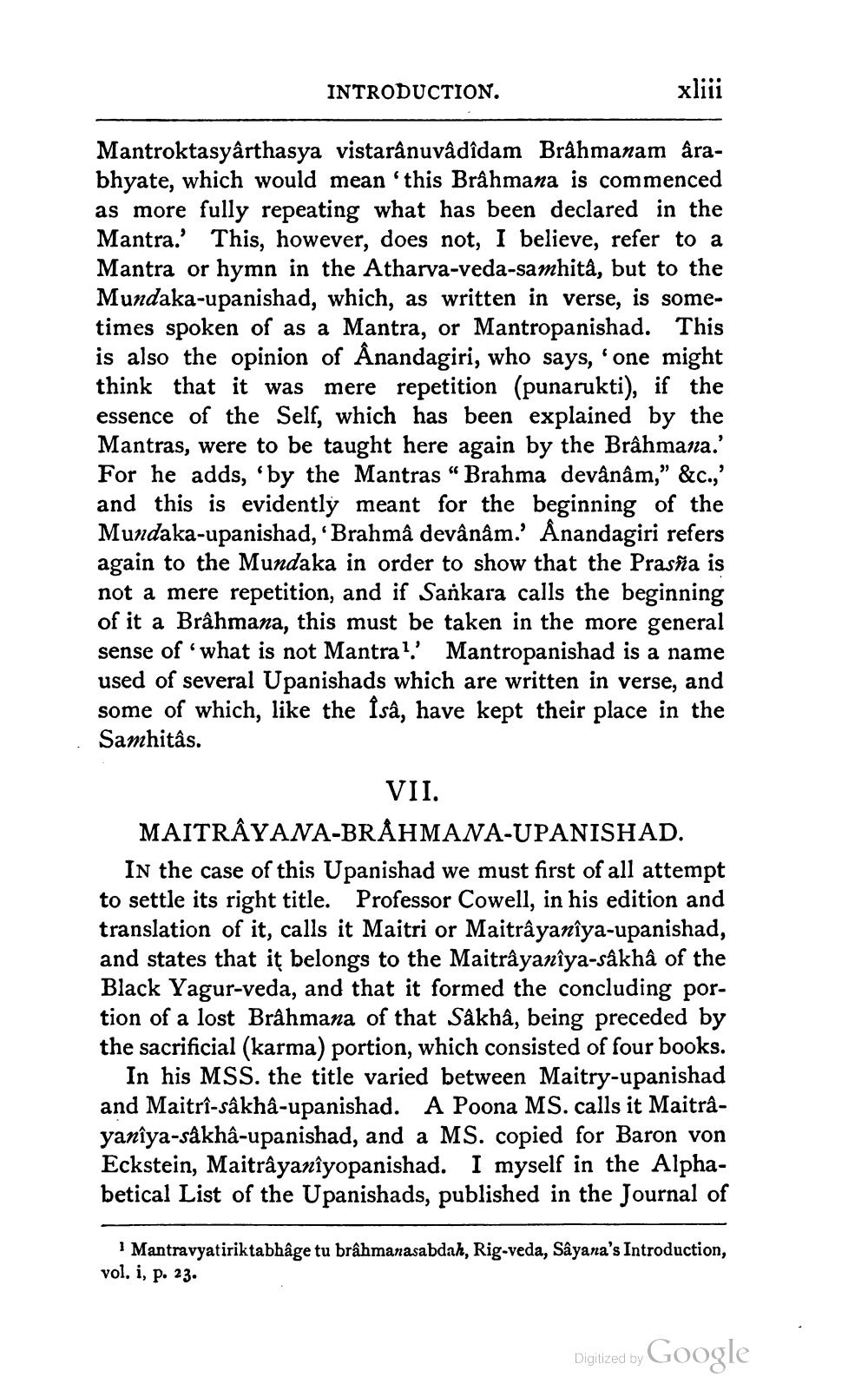________________
INTRODUCTION.
xliii
Mantroktasyârthasya vistarânuvâdîdam Brâhmanam arabhyate, which would mean 'this Brahmana is commenced as more fully repeating what has been declared in the Mantra.' This, however, does not, I believe, refer to a Mantra or hymn in the Atharva-veda-samhità, but to the Mundaka-upanishad, which, as written in verse, is sometimes spoken of as a Mantra, or Mantropanishad. This is also the opinion of Anandagiri, who says, 'one might think that it was mere repetition (punarukti), if the essence of the Self, which has been explained by the Mantras, were to be taught here again by the Brâhmana.' For he adds, 'by the Mantras " Brahma devânâm," &c.,' and this is evidently meant for the beginning of the Mundaka-upanishad, 'Brahmâ devânâm.' Anandagiri refers again to the Mundaka in order to show that the Prasña is not a mere repetition, and if Sankara calls the beginning of it a Brâhmana, this must be taken in the more general sense of what is not Mantra?!' Mantropanishad is a name used of several Upanishads which are written in verse, and some of which, like the Isâ, have kept their place in the Samhitâs.
VII. MAITRẦYANA-BRÅHMANA-UPANISHAD.
In the case of this Upanishad we must first of all attempt to settle its right title. Professor Cowell, in his edition and translation of it, calls it Maitri or Maitrayanîya-upanishad, and states that it belongs to the Maitrầyanîya-sâkhâ of the Black Yagur-veda, and that it formed the concluding portion of a lost Brâhmana of that Sâkhâ, being preceded by the sacrificial (karma) portion, which consisted of four books.
In his MSS. the title varied between Maitry-upanishad and Maitrî-sâkhâ-upanishad. A Poona MS. calls it Maitrâyanîya-sakhâ-upanishad, and a MS. copied for Baron von Eckstein, Maitrầyanîyopanishad. I myself in the Alphabetical List of the Upanishads, published in the Journal of
1 Mantravyatiriktabhâge tu brâhmanasabdah, Rig-veda, Sayana's Introduction, vol, i, p. 23.
Digitized by
Digitized by Google




